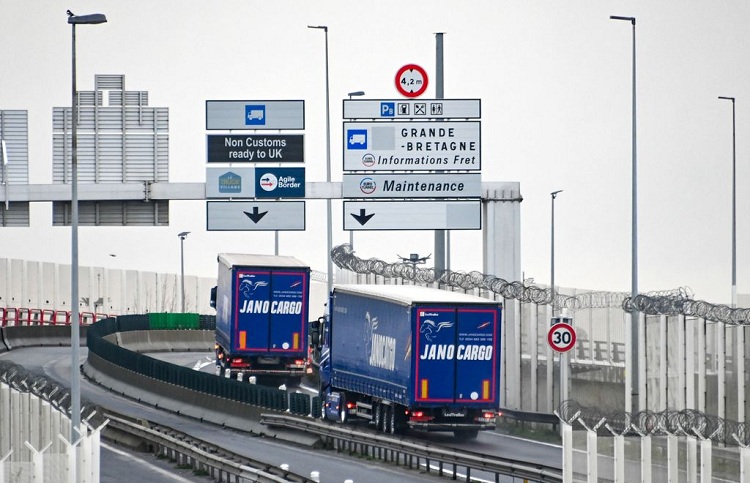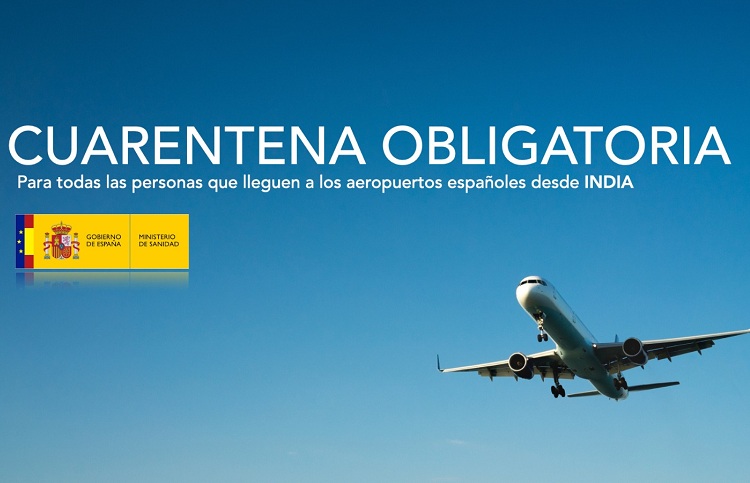The Diplomat
The European Parliament has approved by a large majority the agreement that will regulate relations between the EU and the United Kingdom, although it has called on London to “act in good faith” regarding the Protocol on Ireland. The Minister of Foreign Affairs, Arancha González Laya, recalled in this regard that “compliance with what has been agreed is fundamental for a relationship with the United Kingdom based on trust”.
The approval of the European Parliament went ahead yesterday with 660 votes in favor, five against and 32 abstentions. “The European Parliament has given the green light to the EU-UK trade and cooperation agreement,” said González Laya via her Twitter account. “This is the basis for the new relationship between the EU and the UK, much remains to be done”, she continued. “Spain will seek to push relations forward on the basis of trust and mutual interest”, she concluded.
On December 24, 2020, EU and UK negotiators initialed a Trade and Cooperation Agreement that sets out the rules for future bilateral cooperation. The agreement applies provisionally from January 1 in order to minimize the effects of an abrupt change in the relationship, but its final entry into force required the approval of the European Parliament before tomorrow, April 30, when the transitional period ends.
The agreement establishes zero quotas and zero tariffs between the EU and the Kingdom and guarantees for fair competition “can serve as a model for future trade agreements”, according to the resolution approved by the European Parliament, prepared by the Coordination Group for Brexit and the Conference of Presidents. It also backs the clauses on fisheries, consumer affairs, air traffic and energy and regrets that London has refused to extend the pact to the areas of foreign policy, security and development, as well as to participate in the Erasmus+ student exchange program.
The text – which makes no allusion to the case of Gibraltar – recalls that the preservation of peace in the whole of the island of Ireland is one of its main objectives in the framework of the relationship with the United Kingdom, and therefore condemns the recent British actions that represent “a violation of the Withdrawal Agreement” and calls on the British Government to “act in good faith and fully implement the terms of the agreements it has signed”, including the Protocol on Northern Ireland, “without delay and on the basis of the timetable agreed with the European Commission”.
On March 3, Boris Johnson’s government unilaterally decided to postpone until October 1 the start of the application of customs controls on goods shipped from the United Kingdom to Northern Ireland, instead of the originally planned date of April 1. With this decision, London contravened the Protocol on Ireland to the Agreement with the EU, which caused the greatest friction between London and Brussels during the negotiations and whose aim was to avoid a new border between the two Irish states and thus preserve the Good Friday Peace Agreement of 1998. Both the EU and the Irish government denounced Johnson’s maneuver and the European Commission has initiated infringement proceedings.
Precisely, González Laya warned this past Tuesday in the plenary session of the Senate that “the Protocol on Ireland and Northern Ireland is the best means to protect peace”, because “it avoids the physical border, allows the functioning of the island’s economy and safeguards the single market”, and regretted, therefore, the “unilateral measures” adopted by London. For this reason, she declared -in response to a question from Senator Luis Jesús Uribe-Etxebarría, of the PNV- that for Spain it is “essential that the Member States maintain their unity and support so that it is the European Commission that demands firmness” from London. “Compliance with what has been agreed is fundamental if we want to have a relationship with the United Kingdom based on trust in the future”, she added.
Once the agreement is approved, the European Parliament will be responsible for the “monitoring and implementation” of the text, “also when taking important unilateral decisions of the Union”. Apart from that, “the agreement will enter into force once the Council formally concludes it before 30 April”, the European Parliament added.







